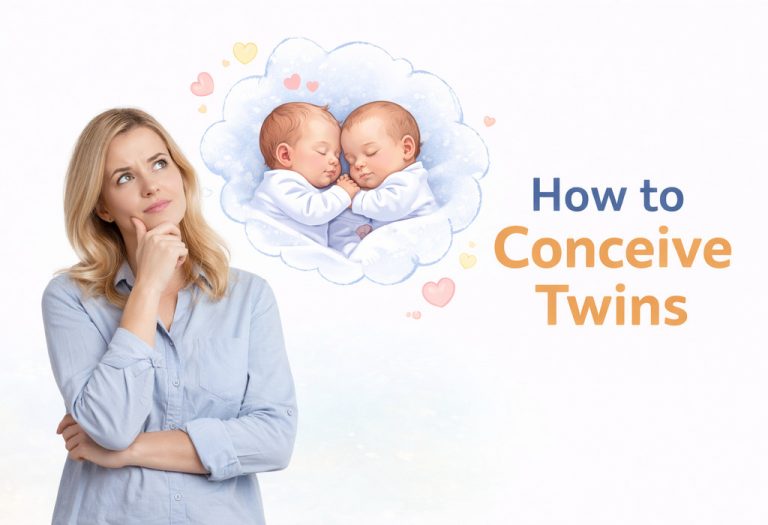What Is an Ideal Weight to Get Pregnant?

Some women may experience difficulty in conceiving if they happen to be overweight or underweight. Research indicates that women who are obese or underweight may take longer to get pregnant than those who have a healthy weight (1). Doctors also suggest that the chances of diabetes and high blood pressure are greater for overweight women when they conceive. Therefore, conceiving women must have a healthy weight to get pregnant.
Therefore, it is essential to attain a healthy weight not only to enhance your chances of getting pregnant but also for the health of the child and to ensure a safe pregnancy. So one question that comes to the mind of all women is, ‘what is the ideal weight to get pregnant?’ There is no specific answer to this question as every woman holds a different Body Mass Index (BMI). Doctors usually recommend that the BMI of women should possibly be between 19 to 25 to have the best chances of conception.
What Role Does Weight Play When It Comes to Conceiving?
Weight plays a predominant role when it comes to getting pregnant, as weight influences the functioning of a woman’s body in many ways. Being underweight or being overweight can make getting pregnant harder. In case a woman is underweight or overweight, it can negatively impact the hormonal balance in her body, thereby making it difficult for her to ovulate and conceive. Studies suggest that underweight, obese or overweight women have greater chances of infertility.
On the other hand, women who have a healthy weight before getting pregnant are likely to experience a better pregnancy, have a relatively easy delivery and give birth to healthier babies. They are also less likely to develop gestational diabetes and high blood pressure during their pregnancy.
Ideally, reaching a healthy weight should happen before conception. Doctors don’t recommend losing weight after a woman has conceived. Thus, if a woman is aspiring to get pregnant and does not possess a healthy weight, she should endeavour to attain it during the pre-pregnancy phase and must be properly informed about the ideal weight for conceiving.
What If You Are Underweight When Trying to Get Pregnant?
A woman may be underweight because of excessive dieting or unhealthy eating habits. According to Better Health, Being underweight (BMI under 18.5) can negatively affect the mensuration cycle, imbalance hormones, and may make predicting ovulation tough. These factors, in turn, may make conceiving difficult (2) (3). Also, an underweight woman may be at a greater risk of giving birth to a baby with reduced birth weight.
What If You Are Overweight and Trying for a Baby?
According to research, almost 25 per cent of infertility cases related to ovulation can find obesity as one of the causes. Women who are obese or overweight are likely to suffer hormonal imbalances, which can lead to irregular menstrual cycles and hamper ovulation. They also are more prone to develop thyroid disorders. Hormonal imbalances can trigger a medical condition called PCOS (Polycystic Ovarian Syndrome), which can further cause weight gain and infrequent ovulation, resulting in complications for possible conception (1). PCOS is also linked to higher androgen levels and lower oestrogen levels, which can stop the woman’s ovaries from releasing eggs.
In case an overweight woman becomes pregnant, she may be exposed to a higher risk of problems during her pregnancy and also at childbirth. Obese women have more chances of giving birth to a baby by cesarean section. Furthermore, due to lower implantation and pregnancy rates, increased maternal and fetal complications during pregnancy, and higher miscarriage rates, babies of overweight women are at a developed risk of being born with congenital disorders and higher birth weight (4). Therefore, women need to maintain an ideal weight to become pregnant.
What Is the Healthy Weight for Getting Pregnant?
Women who wish to get pregnant soon are generally concerned about weight. In this respect, it may be important to consider the body mass index (BMI) of a woman to determine the ideal weight before getting pregnant. Usually, an ideal BMI between 18.5 and 24.9 may offer the maximum possibility of getting pregnant (5). Therefore, the minimum weight to get pregnant in kg should lie within this range.
While adults having a BMI below 19 are called underweight, a BMI between the range 25 and 29 is considered overweight and BMI above 30 signals obesity (2). Here is the BMI table as per Mayo Clinic (6):
| BMI | Status |
| Below 18.5 | Underweight |
| Between 18.5 and 24.9 | Standard Weight |
| Between 25 and 29 | Overweight |
| Above 30 | Obese |
To calculate the BMI of a woman, the height in inches and weight in pounds of a woman is measured. The respective measurements are divided. The number is multiplied by 703 to obtain the BMI. It is always desirable to achieve a healthy BMI by eating a balanced diet, which may also enhance your odds of conceiving.
FAQs
1. What can women eat and avoid to aim for an ideal weight during pregnancy?
Women planning to conceive with a healthy weight must include fresh, seasonal fruits and vegetables, pasteurised dairy products, protein-rich foods like eggs, tofu, lean meat, fish, pulses, beans, bread and pasta made from wholegrain, raw nuts, and iron-rich foods, including red meat. You must avoid alcohol, smoking, ultra-processed, heavy fried foods, junk foods, those made with palm oil, fish high in mercury, and unpasteurised food, as they are nutritionless and do not support ovulation (1).
2. Do irregular periods or no periods at all affect the conceiving rate?
Yes, an irregular or no period may affect the conceiving rate as it is an indication of something wrong with the monthly ovulation process, which should be efficient for conceiving. However, that does not mean that women with irregular or no periods do not conceive (7). If you experience irregular to patchy periods, do not waste any time consulting your gynaecologist.
3. How to maintain a healthy weight with an aim to conceive?
According to the Tommy’s, staying fit by exercising regularly can increase your fertility rate and help you get pregnant (5).
Women hopeful of conceiving may like to maintain a healthy BMI and weight to improve their likelihood of getting pregnant. You can always seek your doctor’s advice and guidance to accomplish your ideal weight while trying for a baby.
References/Resources:
1. Weight, fertility, and pregnancy; OASH; https://www.womenshealth.gov/healthy-weight/weight-fertility-and-pregnancy
2. Weight, fertility and pregnancy health; Better Health Channel; https://www.betterhealth.vic.gov.au/health/conditionsandtreatments/weight-fertility-and-pregnancy-health
3. Healthy weight when trying to get pregnant; HSE; https://www2.hse.ie/pregnancy-birth/trying-for-a-baby/healthy-weight/
4. Dağ. Z. Ö, Dilbaz. B; Impact of obesity on infertility in women; Journal of the Turkish-German Gynecological Association; PubMed Central; https://www.ncbi.nlm.nih.gov/pmc/articles/PMC4456969/; June 2015
5. The benefits of exercising/being active when trying to conceive; Tommy’s; https://www.tommys.org/pregnancy-information/planning-a-pregnancy/are-you-ready-to-conceive/being-active-when-trying-conceive
6. Pregnancy and obesity: Know the risks; Mayo Clinic; https://www.mayoclinic.org/healthy-lifestyle/pregnancy-week-by-week/in-depth/pregnancy-and-obesity/art-20044409
7. Can I Get Pregnant if My Periods Are Irregular?; Nemours TeensHealth; https://kidshealth.org/en/teens/irregular-periods-qa.html
Also Read:
Best Sex Positions To Get Pregnant Faster
How to Get Pregnant Fast with Irregular Periods
Effective Home Remedies To Get Pregnant Fast
Best Time of the Day to Get Conceive – Morning, Afternoon or Night?
Was This Article Helpful?
Parenting is a huge responsibility, for you as a caregiver, but also for us as a parenting content platform. We understand that and take our responsibility of creating credible content seriously. FirstCry Parenting articles are written and published only after extensive research using factually sound references to deliver quality content that is accurate, validated by experts, and completely reliable. To understand how we go about creating content that is credible, read our editorial policy here.




































